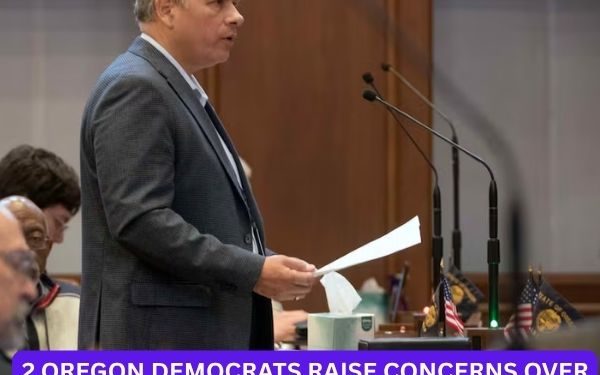As Oregon’s legislative session draws to a close, the state’s nearly $2 billion transportation package is hitting political turbulence—not from Republicans, but from within the Democratic ranks.
Sen. Mark Meek (D-Gladstone) and Rep. Paul Evans (D-Monmouth) have publicly expressed serious reservations about House Bill 2025, signaling they are not ready to back the proposal in its current form. Their opposition threatens the bill’s viability, especially if Republican members of the Joint Committee on Transportation Reinvestment vote against it as expected.
“I am frustrated to the highest level,” Meek said during a committee meeting Tuesday. “You can expect a no vote out of me right now.”
What’s in the Bill?
The sweeping transportation package includes tax and fee increases to shore up funding for Oregon’s aging infrastructure. Among the most contentious provisions is a new transfer tax on vehicle sales, expected to generate $265 million annually, and a 15-cent gas tax increase over the current 40 cents per gallon.
Other recent amendments include incentives for electric vehicles, a luxury vehicle tax, and added oversight for how transportation dollars are allocated to cities, counties, and the Oregon Department of Transportation (ODOT).
Meek’s Main Concerns
Meek criticized the last-minute amendments introduced Tuesday, saying lawmakers haven’t had sufficient time to review them. He’s especially concerned about raising costs for everyday Oregonians amid ongoing economic uncertainty and job losses.
“We’re crossing the lines of what Oregonians are expecting of us,” Meek said. “I’m willing to pass a package that keeps ODOT whole, but we need to get back to basics and fundamentals. We don’t need a lot of fluff.”
Evans Wants More Oversight, Local Priorities
Rep. Evans also isn’t on board—yet. He’s pushing for stronger oversight on fuel tax revenues and wants lawmakers to prioritize seismic retrofitting of the Center Street Bridge in Salem, a long-delayed project in his district.
“I’m not terribly excited about voting for a bill that puts the capital city last again,” Evans said. “It would be catastrophic to have a seismic event and have 45,000 people unable to reach medical care.”
He remains hopeful for a compromise but believes the bill is “not quite ready.”
“I think there’s a 50% chance it comes together and is good,” Evans said. “And a 50% chance we come back and re-attack it later.”
What Happens Next?
The bill must first clear the committee, where just one Democratic defection could stall progress. If it advances, it faces another hurdle: Democrats need a supermajority in both chambers to pass the tax increases.
Meanwhile, Republicans are gearing up for a fight, possibly aiming to refer the measure to voters. A newly formed political action committee has already raised $193,000 in a few days to oppose the plan.
“Oregonians cannot afford to be all things to all people for these ultra-progressive Democrats’ wish list,” said House Minority Leader Christine Drazan (R-Canby). “This is out of touch with everyday Oregonians.”
A Balancing Act
Committee co-chair Rep. Susan McLain (D-Forest Grove) emphasized that the bill is still evolving, with amendments aimed at addressing stakeholder concerns and boosting accountability.
“We’ve heard strong and diverse feedback,” McLain said in a statement. “Leaders are working to ensure all voices are reflected while recognizing the urgency of delivering a transportation package.”
Sen. Chris Gorsek (D-Gresham), a key architect of the bill, has yet to comment publicly.
As the legislative clock ticks down, the transportation package’s future hangs in the balance—tied to internal negotiations, voter sentiment, and whether lawmakers can agree on how to fund the roads and bridges Oregon desperately needs without overburdening its residents.











